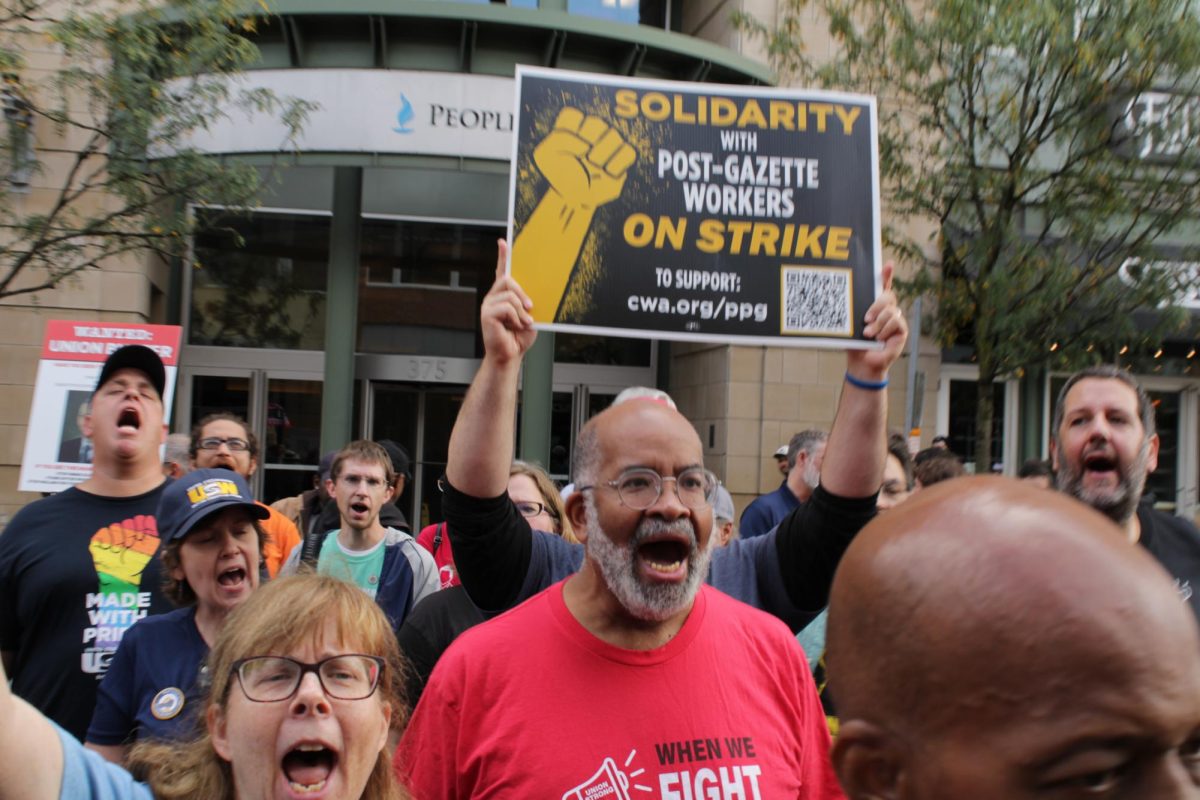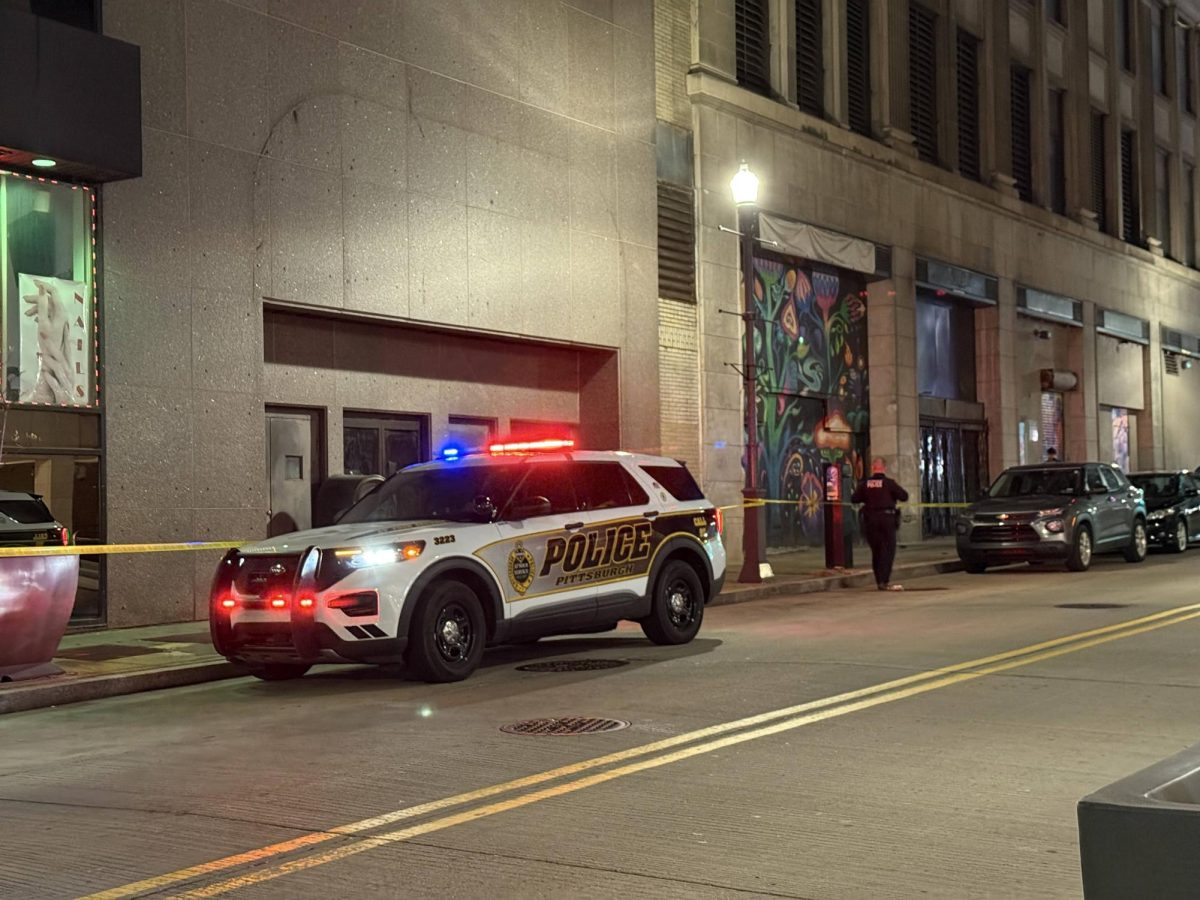Andrew Goldstein,a Point Park University alumnus and former writer for The Globe, and Helen Fallon, a professor emeritus at the university, are just two voices that are crucial to this story.
Pittsburgh Post-Gazette workers marked one year since beginning their strike this past Friday.
A crowd of about 300 formed outside the newspaper’s main office on the North Shore. Attendees included the strike workers and members from other local Pittsburgh unions.
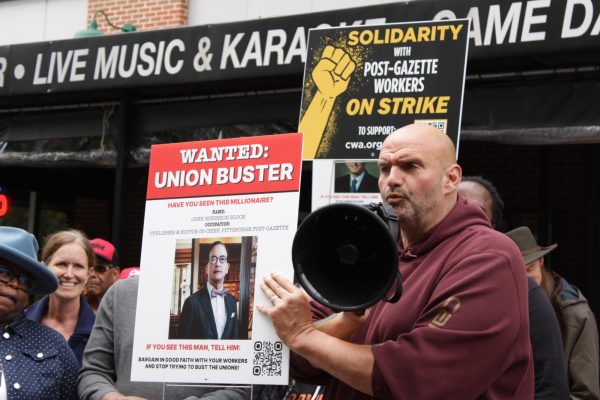
Several local and state-level politicians were also in attendance, including PA Senator John Fetterman, 12th Congressional District State Representative Summer Lee, Pittsburgh Mayor Ed Gainey and District Five City Councilwoman Barb Warwick.
“This paper [the Post-Gazette] has won several Pulitzer Prizes… It is the Super Bowl of journalism as you know,” Fetterman said. “I will come again and again to support you all until this wienie [the owner of the Post-Gazette, Block Communications] does the right thing for all of you.”
On Oct. 18, 2022, guild members at the Post-Gazette authorized an unfair labor practice strike, joining other striking workers on the picket line. The workers are fighting to rescind illegally imposed unilateral working conditions, restore the status quo set by the terms of the 2014-17 collective bargaining agreement, return to the table to bargain in good faith for a successor agreement and restore health care coverage for press, production and advertising workers throughout this past year.
Other unions involved in the strike include the Newspaper Guild of Pittsburgh, the Communication Workers of America (CMA), the Workers Union of North America and the International Brotherhood of Teamsters.
Andrew Goldstein, a K-12 education reporter, Point Park alumnus and former writer for The Globe, commented negatively on police and security issues that have happened during strike demonstrations throughout the year.
“We have been repeatedly threatened and harassed by the private security and the police. The paper calls on us in order to intimidate us,” Goldstein said. “We have been pepper sprayed, we have been threatened with rubber bullets, we have been threatened with arrest, we have been smacked to the ground.”
The strikers have also received threats from current employees. A striker suffered a broken jaw by a current delivery driver for the paper during a demonstration on March 11.
Goldstein said he has been repeatedly approached in public and has been called homophobic slurs.
“These people who are looking down at us today are the ones who did this to us,” Goldstein said. “I never expected for this to become my life, but our members will not be intimidated. We will not back down. This is our city. This is our newspaper. Years from now when you [the owners of the Post-Gazette], we will still be here.”
The Post-Gazette has been publishing throughout the worker’s strike, replacing reporters’ positions in several sections like education, government and sports. The crowd often performed chants about “scabs,” referencing those who have crossed picket lines. Current employees looked down upon the crowd from the building’s third-floor office throughout the demonstration.
James Van Landingham, a mailroom worker on strike, is a third-generation employee of the Post-Gazette and also addressed those in the building above.
“They’re just disgusting people that shouldn’t even own a newspaper,” Van Landingham said. ‘They don’t care about the people of Pittsburgh. They only care about themselves.”
Claude Cummings Jr., the current president of the Communication Workers of America (CWA), said he is going to do what he can to let America know the strike has gone on now for over a year.
“Your fight is my fight; when we fight, we win,” Cummings Jr. said. “They need to restore your healthcare and come back to the table to restore your contract… My message is clear and short. We [CWA] are here to support you in any way we can. The press, the media, all of it. All of our attention needs to be focused on you all right now. This has been far too long.”
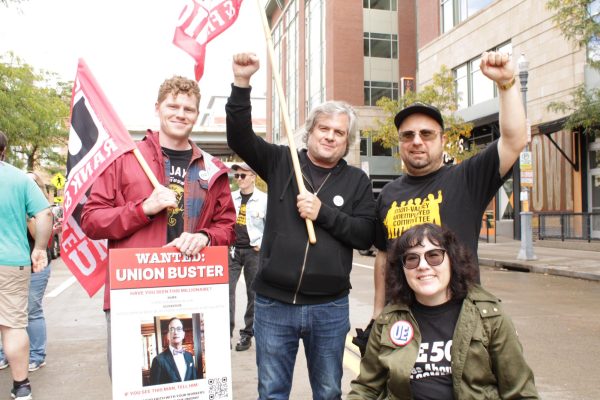
Helen Fallon, a professor emeritus for the university and part-time copy editor, said that she does see an end in sight to the strike.
“It may not be for a while, but I do think we will reach an agreement; we have to,” Fallon said. “I think this is a crucial time marking one year, and they can feel the pressure.”
Fallon also said that this is a “unique” time to be a student journalist and that the strike is a “great learning example.”
“I think students can learn so much from our situation,” Fallon said. “It goes to show that we [journalists] do have a voice and that we can use it for good… it also has painted the unionizing of the city in a much clearer light and gives more context for what students will be entering when they graduate.” Even with the indifference from the Post-Gazette, the strikers still continue to serve the people of Pittsburgh in any way they can.
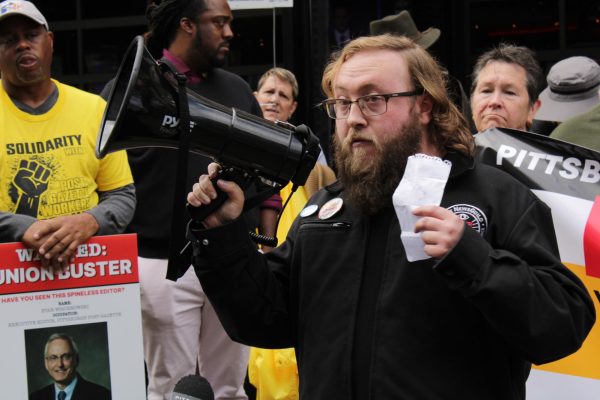
Some strike members started their own online publication called the Pittsburgh Union Progress (PUP) on Oct. 22, 2022, covering the labor dispute and other important Pittsburgh community news. PUP joined the Pittsburgh Media Partnership, which helps support and promote local journalism across the region for the public’s benefit, and even provided two summer internship opportunities. Through donations to the PUP, bills for striking members have been able to be paid.
The Post-Gazette has been involved in lawsuits regarding layoffs in 2018 as well. The Third Circuit Court of Appeals ruled against the paper on Sept. 26. The National Labor Relations Board (NLRB) had found that the Post-Gazette illegally dismissed two paper handlers after the expiration of their labor agreement in 2017. The court also ordered the NLRB board to review whether the newspaper had bargained adequately with the union over the company’s plans to switch to a digital format, which prompted the two layoffs.


